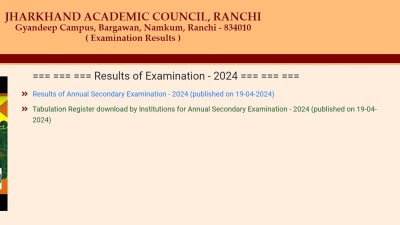- India
- International
Delhi’s admission rush: No child’s play
For parents in the capital, nursery admissions season brings several trials and tribulations.
 For thousands of parents like Ragini, whose son Veda will turn three in February and is eligible for admission in nursery, the process is a test of skill, patience and good luck. (Source: Thinkstock)
For thousands of parents like Ragini, whose son Veda will turn three in February and is eligible for admission in nursery, the process is a test of skill, patience and good luck. (Source: Thinkstock)
Ragini Khanna (31) has strict rules against using smartphones at the dinner table. For the past two weeks, though, she reaches for her phone as soon as it buzzes. It’s nursery admission season, and there could be an update on her son’s status.
“I have to be on top of things for this. Even a small mistake on my part can sabotage my child’s future. This thought keeps me up at night. The pressure is insurmountable at times,” says the mother of one, who is a communications associate at a multinational company.
Read | As Delhi grapples with admission chaos, Gurgaon parents say they’ve faced it too
For thousands of parents like Ragini, whose son Veda will turn three in February and is eligible for admission in nursery, the process is a test of skill, patience and good luck.
The Vasant Kunj resident has taken leave from work till January 15 to make sure they don’t miss out on applications to a school of their choice, and that all the certificates required for admission are in place.

On January 1 — Day 1 of the admission season — Ragini woke up at 7 am and repeatedly checked websites of various schools to check their admission criteria, and the documents required at the time of application.
“All schools were supposed to display their guidelines but this did not happen. We later found out that a number of schools in my area, many of which we were keen on, fall under the list of schools that got land from the government and that admission guidelines for these would be declared later,” she said.
But she didn’t want to take a chance. So, on January 2, when the admission process for 1,400 schools started, she and her husband, Varun Atri (31), drove to the schools of their choice to see if they were accepting application forms.
Day 3 was spent doing the same thing.
“Even though the admission process in most schools is online, we wanted to see the campuses where applications were open. Most schools did not let us even enter, and asked us to visit if Veda made it in. We had, thankfully, prepared all our documents beforehand. Copies of birth certificates, address proof, proof of inoculation — all were in place. We started following admission blogs in October and felt we had a good understanding of the process,” Atri said.
All this while, the couple say they heard plenty of “horror stories” — of children not getting admission in a “suitable” school, of adjustment issues that forced parents to pull them out of school mid-term, and of teachers apparently hitting students.
“It is a rollercoaster ride. One day, we are sure we have found the school we want; the next day we hear of a better school or a parent’s negative experience in another. Sometimes we wonder if all this information overload is worth it,” says Ragini.
The couple is among the more well-informed and privileged ones.
That they live in Vasant Kunj, which has a number of big and small schools in a small radius, helps.
Neighbourhood is the category that fetches the biggest points during admission, with some schools giving it up to 50 per cent weightage during the process.
Other points go primarily to factors such as parents being alumni and having a sibling in the same school.
“We wonder how the others are managing. We have heard of people taking up homes on rent in an area with good schools a year before their child’s admission. Thankfully we didn’t have to resort to something similar, but if I lived in an area without good schools, I would do the same. What about the ones who are not very comfortable with the internet? I wonder how they are applying and understanding the process. Schools aren’t helpful at all during this time,” Atri said.
A change of address
That many people shift homes ahead of admission season is evident from the fact that Saket-based property dealer Sumit Garg’s business sees an upward swing around October. Most of his clients around that time, he says, are parents with young kids looking for accommodation — many times on a temporary basis.
Earlier, parents and children were forced to sit through interviews where three-year-olds were asked to stack blocks based on colour or size. Parents were asked to sit for ‘exams’ in a room with invigilators. All that ended in 2007, when the Delhi government decided that admission will be based on non-discriminatory and fair criteria that do not pressure children to take tests or give interviews.
Over the years, however, the distance between a child’s house and school has become a key criterion in deciding who gets admission — and parents have responded accordingly. In the latest admission guidelines for 298 schools on government land, distance of between 1 and 6 km can go a long way in guaranteeing that your child gets admission in a school of your choice, since it is the only admission criteria, along with the sibling being in the same school.
“Most parents want a house for eight-nine months. Quite a few already have houses in Delhi but want to shift because of their child’s admission. A few also have plans to shift permanently as they live elsewhere on rent. We also see parents who take just one room or a barsaati on rent. They take a new telephone connection and get the address on another identity card, such as a voter ID card, shifted using this,” Garg said.
Saket is home to six well-known schools within a 3-km radius.
Why parents go to these lengths is clear once you look at the admission criteria in popular schools.
At Delhi Public School, Vasant Vihar and East of Kailash, if a child lives within a radius of 1 km from the school, she gets a massive 40 points out of 100. At Gyan Bharti School in Saket, a parent living in a 10 km radius gets 50 points out of 100. At Springdales School, Pusa Road, 33 points out of 100 are given for the neighbourhood criteria.
Garg is not the only one who benefits from this seasonal business.
At Sarvodaya Enclave, home to The Mother’s International School, one of the most popular in the capital, 40 points are given to those who live within a 1-km distance. The rent for a two-bedroom house in the locality is upwards of Rs 40,000 and landlords usually want a guarantee that the tenant will not vacate the house.
But parents don’t always resort to legal ways to up their chances of getting admission in a school of their choice.
A parent got his MTNL telephone connection transferred to the home of a colleague in Gole Market. Desperate for his son to study in St Columba’s School, he changed addresses but only on paper. The parent lives in Rohini and drives his son to school every day.
“A year after admission, I told the school I had shifted to Rohini for personal reasons and got my real address added to school records,” said the parent on condition of anonymity.
Meanwhile, with a week gone by, Ragini and Atri are on tenterhooks — and will be till Veda gets admission in a school they like.
“It is our biggest test as parents. We both have passed competitive exams, got jobs and done well at them but this is a bigger responsibility.
This move determines his next 14 years. We have to get it right,” Atri says.
Apr 19: Latest News
- 01
- 02
- 03
- 04
- 05






































